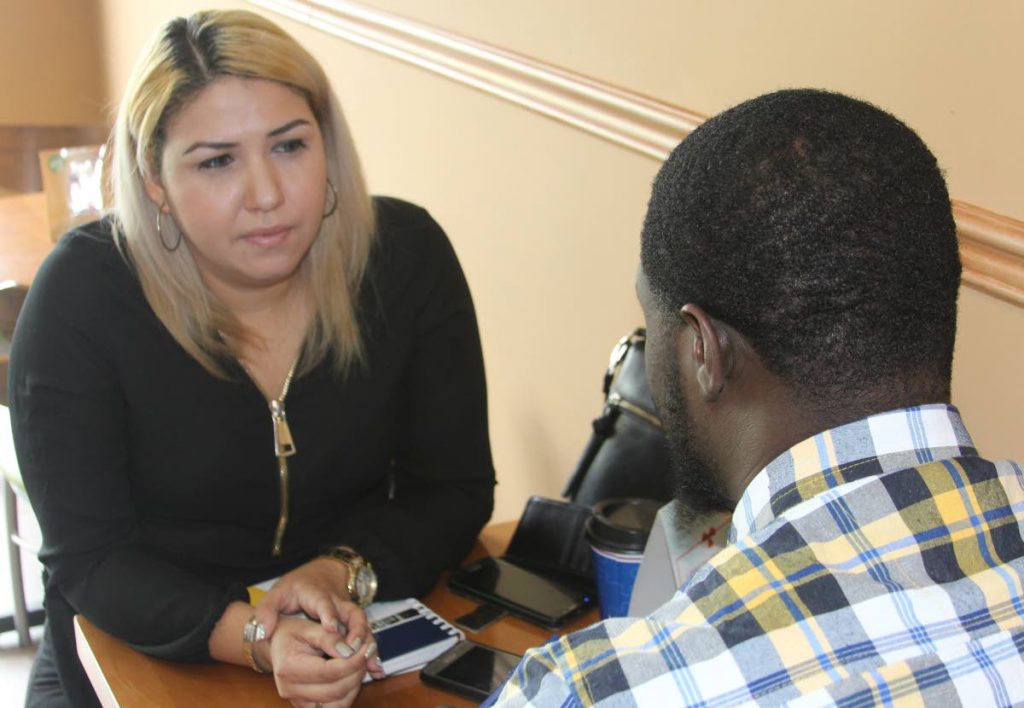‘Give us a chance’

JENSEN LA VENDE
Governmental support, educating children about varying cultures and proper use of social media are some of the tools that can be used to combat xenophobia against Venezuelans.
Speaking with the Sunday Newsday yesterday, clinical psychologist Greisy (pronounced Gracie) Gonzalez said those three tools could go a long way in addressing the negative connotation associated with being Venezuelan. Gonzalez who ran her own psychologist clinic Capacitacion y Atenccion Pscicologica (Training & Psychology Attention) in Venezuela has been living in TT for the past 18 months. She said, while some locals had been negative towards them, the majority of Trinis had been friendly.
“Global isolation have triggered the xenophobia. And it is not just in TT that have it, it exists all over the world and the treatment here is not just to the Venezuelans, it is to all Latin American countries and Guyanese and all immigrants,” Gonzalez said, adding that a lack of opportunities for Venezuelans to show what they can do to better the country for all to enjoy is fuelling the xenophobia as they are forced to do certain jobs.
She said in Colombia the government had opened the borders and provided work permits for many Venezuelans and offered the suggestion to this government. The benefits, she said, included and increase in collected taxes as the immigrant workers could now be taxed.
The Venezuelans will also contribute to the economy by consuming goods and services locally. She said this would also address exploited Venezuelans who were being paid below minimum wage by advantageous business owners.
Gonzalez said while locals were complaining that Venezuelans were coming in droves, TT had the least of fleeing Venezuelans, as her countrymen had flocked to other South American countries and had, for the most part, been accepted.
Addressing crimes committed by Venezuelans, Gonzalez said: “Not because we are in a crisis means that people must do everything for us, no.
A crime is a crime and there is no excuse because you are from Venezuela you must get involved in crime. There is always a choice.
Those who want to do that, they are making themselves victims. I decided that I will not be a victim.”
Gonzalez, who is married to a Trinidadian said she wanted to pursue another masters degree here and contribute to the society. She is working on becoming a citizen. She said she chose to come to TT after she could no longer manage the political pressure and, like her, many other Venezuelans here want to give back, but a lack of documentation was preventing that.
The former university lecturer said there were qualified people in TT doing manual labour and jobs not wanted by locals but could offer so much more if given the chance. “Not everybody should get work permits.
There should be a filter. You must not have any criminal record, capable of speaking English and have a skill or profession” Gonzalez said, adding that was what was being done in Colombia creating an even field.
She said being in TT is a lesson in humility, having gone from being gainfully employed to now having skills that can’t be used.
Life now is daily lessons she said admitting that at times she no longer knows who she is but she keeps pressing, determined to succeed and prove herself worthy of being a contributor to this society.
Like dozens of Venezuelans qualified and eager to work, she said all they want is an opportunity to prove themselves.


Comments
"‘Give us a chance’"